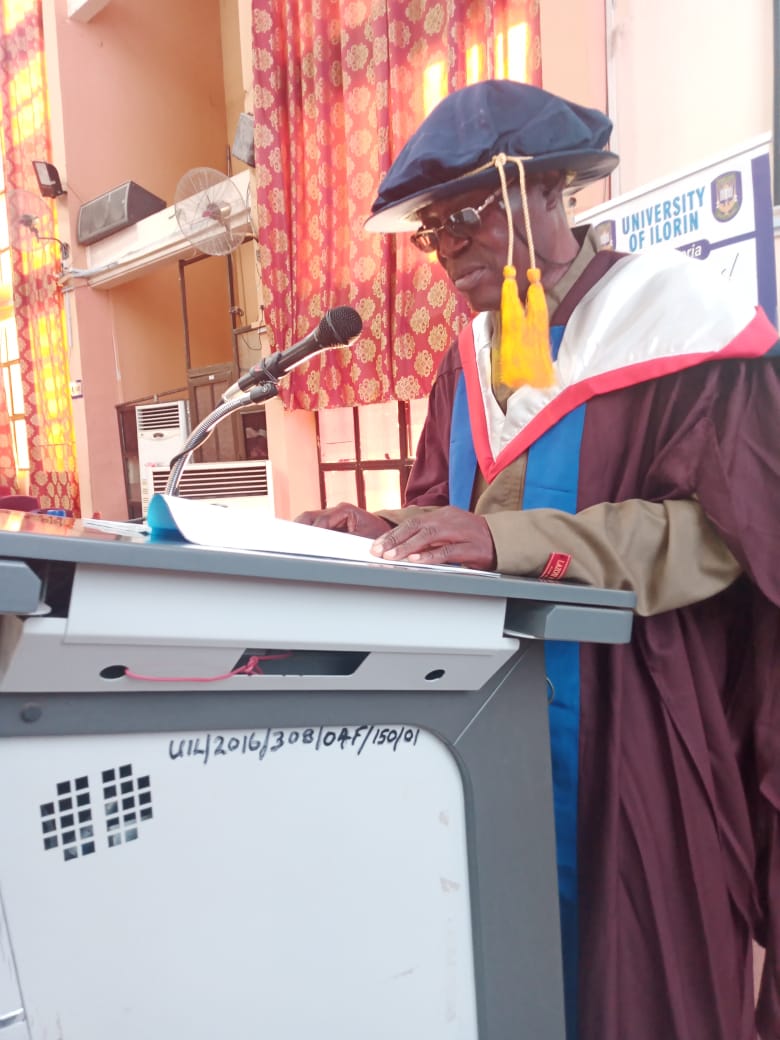
Gbolahan Balogun
AProfessor of Business Administration in the Faculty of Management Sciences, University of Ilorin, Sulu Babaita Isiaka, said researches have shown that strong creative energies, leading to new discoveries are unleashed, as a result of high motivation in employees.
High motivation, he said, promotes dedicated service, commitment to work and enables employers to obtain maximum output and best performance possible from employees. A well motivated workforce also typically attains a level of self-control and self-direction, which enable them to work effectively with minimum monitoring or supervision as the case may be and, tend to stay on the job and grow with it.
The Professor of human resources management was sharing his achievements in research, engagement and teaching activities before an audience of members of the University community and the public while delivering the institution’s 237th Inaugural Lecture. It was titled: “Motivation Makes Monitoring and Supervision Easy”.
According to him, highly motivated employees are usually noted to show interest in improving their job performance and output, while reverse is the case with low motivation.
Presenting an overview of his research career, which he disclosed has produced over 60 manuscripts, comprising of journal articles, chapters in books and conference proceedings, thus far, the inaugural lecturer said his research work had in general, contributed to tackling human resources and general management challenges.
He said his work at various strata had examined the impact of motivation on employees’ attitude to work and monitoring of employees in the Nigeria work environment.
“The main finding is that inappropriate motivation leads to undue monitoring of employees as a result of negative attitude to work in a Nigerian work environment
“Attitude displayed in the workplace directly affect the atmosphere and productivity within an organisation.
“The study recommends that appropriate motivation be given to employees.
“This will eliminate or reduce unnecessary monitoring of employees in the place of work. A positive attitude toward work will also be exhibited by employees.
“A motivated workforce is typically a more productive workforce, with less absenteeism and turnover”, he disclosed.
He however observed that employers should be mindful of human dignity in dealing with employees.
“We should note the generally accepted fact that people are with individual differences.
“Gender, age, marital status, and level of employees are some issues that bring about the differences. We may have identical twins, but with different needs, preferences, and motivation, no two people think and act alike.
“We equally have the same scenarios in organizations with individual differences in needs, preferences, and motivation.
“It is, therefore the job of the manager to appreciate the difference in people, and treat them appropriately, the way we are treated at the cafeteria and restaurant.
“Manager will fail to achieve his objectives, if he neglects the motivation of those responsible to him.
Motivation, he said, is a psychological act which attracts the workers to do more “and instigates other workers to do more than the standard work and earn more for themselves which increases their living standard.
“Managers should, therefore, make sure they motivate and understand the workers so that the objectives of the organisation are fulfilled to a large extent
Isiaka stressed that the study of motivation helps managers understand what prompts people to initiate action, what influences their choice of action, and why they persist in that action over time.
“People work in organisations because they expect that their performance will correlate with the rewards they receive; that, people are also more willing to work and work harder, if they feel their work will have an impact on the organization.
He said creating a positive work environment, or communicating effectively with employees, and providing training and support, many times do not lead to reduction in monitoring and supervision, but rather, “Appropriate motivation is required to serve as a strong backup to achieve the expected results.
“Monitoring and supervision of employees at the workplace are very important, but it can be drastically minimised if appropriate motivation is put in place.
A manager's job, therefore, he said, is to channel motivation towards the organisation’s goals because it would have a positive effect on monitoring and supervision, which is the bedrock of Business in our world today.




Comments powered by CComment